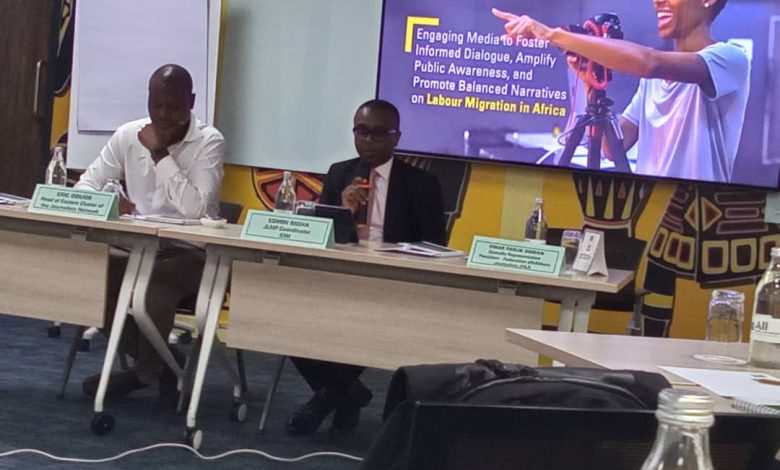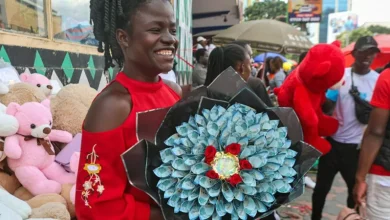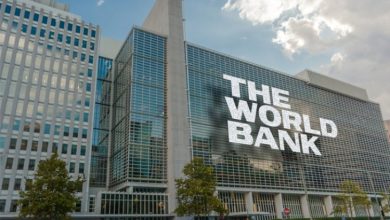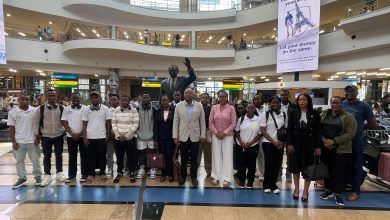Empowering African journalists to reframe migration narratives

NAIROBI, KENYA : Journalists from across Eastern Africa have gathered in Nairobi for a crucial three-day regional training focused on inter-storytelling in labor migration, organized under the Joint Labour Migration Programme (JLMP).
The event, jointly supported by the African Union Commission, IOM, ILO, and the Federation of African Journalists, seeks to equip reporters with tools to tell balanced, evidence-based migration stories from an African perspective.
Opening the event, Edwin Righa, head of the Eastern African cluster of the National Network of Journalists, emphasized the strategic role journalists play in shaping the public’s perception of migration.
“You are the truth-seekers and agenda-setters. Your role in how migration is perceived and acted upon is indispensable,” he told participants.
He noted the need to shift from sensational or politically driven migration stories to those that reflect the developmental dimensions and human realities of labor migration.
Righa underlined the continent’s rapidly transforming economy and growing cross-border labor mobility, especially among youth.
However, he expressed concern that prevailing narratives rarely capture this complexity.
“Most migration stories focus on disasters. While these are important, we must also amplify stories of dignity, opportunity, and development,” he said.
One of the key goals of the training is to bridge the gap between data and storytelling. Journalists were encouraged to use data and statistics to produce sharper, faster, and more credible reporting. According to Righa, such tools can ground narratives in facts, enhancing public trust and understanding.
The workshop also builds on the momentum of the Africa Labour Migration Journalist Network, launched in 2023 to foster ethical and collaborative journalism. “This training marks a deepening of that vision to bring the newsroom closer to policymakers and the voices of migrant workers,” Righa noted.
Echoing these sentiments, Erick Oduor, Secretary-General of the Kenya Union of Journalists, lamented that most migration stories in African media originate from foreign sources. “This training empowers us to reclaim our narratives and present migration stories that reflect our realities, not foreign interests,” he stated.
Oduor announced the formation of a regional network with seven representatives from across Eastern Africa, including Kenya, Uganda, Rwanda, Tanzania, South Sudan, Seychelles, and Comoros. The aim is to localize the migration reporting agenda and ensure country-level networks are built to sustain efforts.
Highlighting a recent example, Oduor shared how the Kenya Union of Journalists negotiated a clause in a collective bargaining agreement to protect migrant workers employed in Kenya.
“We must also think about those working within our borders who are not nationals. They deserve fair treatment and protection,” he said.
In closing, participants were encouraged to push boundaries and actively engage in policy conversations at national and continental levels. “We must stop treating the media as an afterthought,” Oduor insisted. “The media should be at the table from the start, helping shape migration policies and public understanding.”
The training continues for two more days, with expectations that the resulting stories and networks will transform how Africa tells its migration story focusing on authentically, accurately, and impact fully.






Thanks for your publication on this blog. From my own experience, occasionally softening upwards a photograph may possibly provide the professional photographer with a dose of an inspired flare. Many times however, this soft clouds isn’t precisely what you had under consideration and can in many cases spoil an otherwise good image, especially if you anticipate enlarging the item.
It?s arduous to find educated folks on this subject, but you sound like you realize what you?re speaking about! Thanks